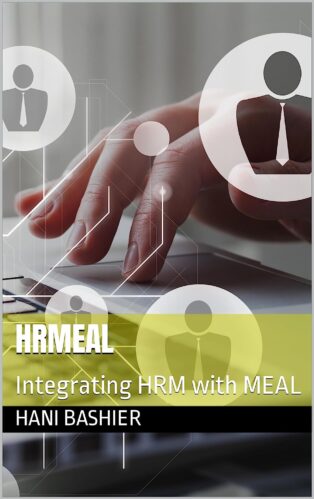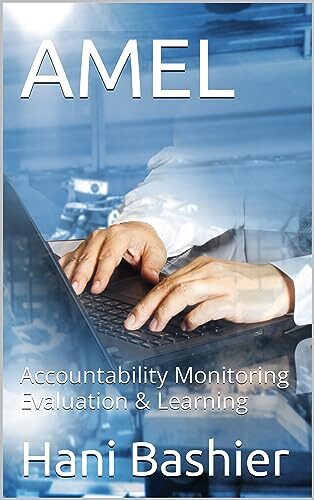Navigating the Supervisory Dynamic: Program Managers vs. Monitoring, Evaluation, Accountability, and Learning (MEAL)
In the realm of international development and humanitarian aid, the debate over who should supervise whom between program managers and monitoring, evaluation, accountability, and learning (MEAL) specialists has been a subject of much discussion. In this comprehensive article, we will delve into the roles and responsibilities of both program managers and MEAL specialists, explore the relationship between the two, and examine the supervisory dynamics to determine the most effective approach to management.
Understanding the Roles: Program Managers and MEAL Specialists
To effectively evaluate the supervisory relationship between program managers and MEAL specialists, it is essential to understand their respective roles and responsibilities within an organization.
Program Managers are responsible for overseeing the planning, execution, and closing of projects within an organization. They define project objectives, develop project plans, assemble project teams, allocate resources, monitor project progress, and communicate with stakeholders. In essence, program managers are the driving force behind the successful completion of projects.
Monitoring, Evaluation, Accountability, and Learning (MEAL) Specialists are responsible for designing and implementing MEAL systems that help organizations systematically collect, analyze, and use data to inform decision-making, enhance program effectiveness, and ensure accountability to stakeholders. MEAL specialists work closely with program teams to track progress, learn from successes and challenges, and adapt strategies to improve the impact of interventions.
The Relationship between Program Managers and MEAL Specialists
The relationship between program managers and MEAL specialists is characterized by a mutual dependency, as both roles are critical to the success of development projects. MEAL specialists support program managers by providing data-driven insights, while program managers rely on MEAL specialists for guidance on how to improve project outcomes based on the findings of MEAL processes.
This interdependent relationship calls for a collaborative approach to project management, where both program managers and MEAL specialists work together as a team to achieve project objectives and enhance program effectiveness.
Supervisory Dynamics: Balancing Power and Collaboration
Given the interdependent relationship between program managers and MEAL specialists, the question of who should supervise whom becomes complex. There are several factors to consider when determining the most effective supervisory dynamic:
1. Organizational Structure and Hierarchy
The structure of an organization plays a significant role in determining the supervisory relationship between program managers and MEAL specialists. In some organizations, MEAL specialists may report directly to program managers, while in others, they may have a separate reporting line to a higher-level manager or director. The organizational hierarchy and reporting lines should be designed in a way that facilitates effective collaboration and communication between program managers and MEAL specialists.
2. Integration of MEAL Processes in Project Management
The integration of MEAL processes into project management is essential for the successful implementation of development projects. Program managers and MEAL specialists should jointly develop and implement MEAL systems and indicators that align with project objectives and inform decision-making. This collaborative approach ensures that both roles contribute to the project’s success and that MEAL processes are effectively integrated into project management.
3. Balancing Accountability and Learning
The supervisory dynamic between program managers and MEAL specialists should strike a balance between accountability and learning. While MEAL specialists are responsible for holding program managers accountable for project outcomes, they should also work collaboratively with program managers to identify areas for improvement and develop strategies to enhance program effectiveness. This balanced approach fosters a culture of continuous learning and improvement within the organization.
4. Fostering a Culture of Collaboration and Mutual Respect
The relationship between program managers and MEAL specialists should be characterized by a culture of collaboration and mutual respect. Both roles should recognize the unique expertise and contributions of the other and work together to achieve project objectives and enhance program effectiveness. This collaborative approach ensures that both program managers and MEAL specialists are aligned in their efforts and that the organization benefits from the combined expertise of both roles.
Conclusion: A Collaborative Approach to Supervision
Given the interdependent relationship between program managers and MEAL specialists, it is essential to adopt a collaborative approach to supervision. Instead of focusing on a hierarchical supervisory dynamic, organizations should foster a culture of collaboration and mutual respect between program managers and MEAL specialists. This approach ensures that both roles work together effectively to achieve project objectives and enhance program effectiveness.
In conclusion, the debate over who should supervise whom between program managers and MEAL specialists is best addressed through a collaborative approach to supervision. By fostering a culture of collaboration and mutual respect, organizations can ensure that both roles contribute effectively to the success of development projects and that MEAL processes are fully integrated into project management. This collaborative approach not only enhances program effectiveness but also contributes to the overall success and impact of development and humanitarian initiatives.






